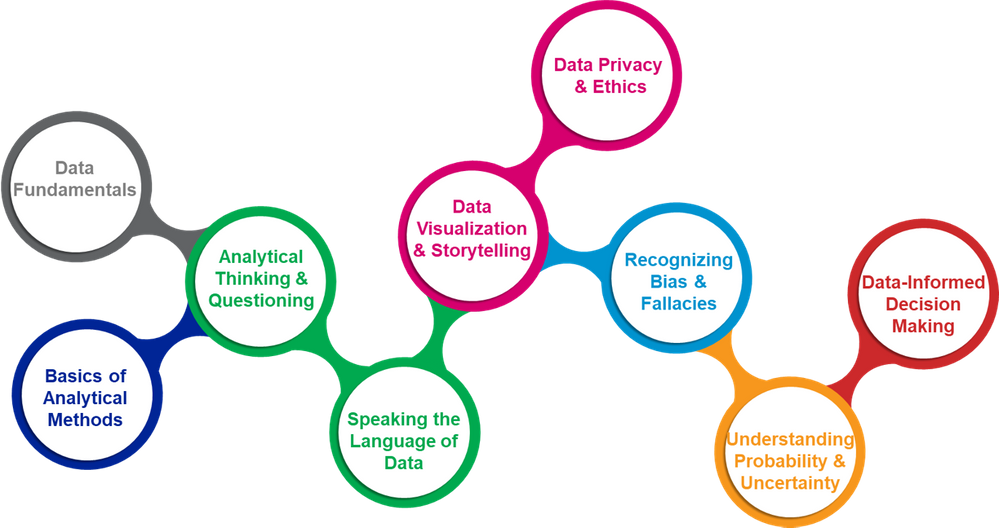Data Literacy ~ Data Strategy or Culture
Data Strategy or Culture
Example: "Meetings are data-driven and analytically rich. Metrics and analytics are at the forefront of business decision-making, not an afterthought to validate an opinion. Data is trusted, and context of data is understood and appreciated. We discuss outcomes and moments powered by data and insight." (Gartner, 2019, Toolkit)
A data culture is a
"learning environment within a school or district that includes attitudes, values, goals, norms of behavior and practices, accompanied by an explicit vision for data use by leadership for the importance and power that data can bring to the decision-making process. (Hamilton et al., 2009, p. 46)" (Mandinach, 2012)
The rules of using and caring for data, offered by Goodman (2014), can guide researchers in their effort to ensure that their data and analyzes continue to be of value. The recommended behaviours include:
• Conducting research with a particular level of reuse in mind;
• Linking data to someone's own publications as often as possible;
• Stating if someone wants to get credit for data and describing how it may
happen,
• Rewarding colleagues for sharing data;
• Publishing a description of processing steps in order to enable
interpreting and reusing data;
• Fostering and using data repositories;
• Sharing data with a permanent identifier (e.g. the Digital Object Identifier,
DOI). (Cited by Koltay, 2015)
Relevant Links
These links are typically articles defining data literacy that include this theme in their definition.
, Canada.ca, 2021;, Korri Palmer, Safegraph, 2021;, Open Data Institute, 2020;, Gartner, 2019;, Helena Sternkopf, Roland M. Mueller, University of Hawai'i at Manoa, Proceedings of the 51st Hawaii International Conference on System Sciences, 2018;, Ellen B. Mandinach, Educational Psychologist, 2012;, Tibor Koltay, Journal of Librarianship and Information Science, 2015;
